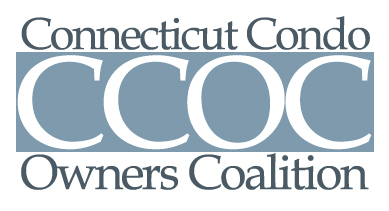Articles By Attorney Patricia Ayars
Filing Discrimination Complaints
A Condominium Association cannot discriminate on the basis of age, ancestry, color, learning disability, marital status, mental retardation, national origin, physical disability, mental disability, race, religious creed, sex, gender identity or expression and sexual orientation. To make a discrimination complaint about housing, contact the CHRO Housing Discrimination Unit located at 25 Sigourney Street, Hartford, CT
Four Pillars Of Trust
“Trust me.” Upon hearing those words, most people search their backs to locate the knife. Trust is earned through action, not by words or good intentions. Condominium boards are often described as being untrustworthy, sometimes with cause. Board members may be unaware of their responsibilities. Board members may be afraid of unit owners and the
Ask Atty. Pat: What Rules Must Associations Follow For Disability Laws?
The Federal Fair Housing Act and the Connecticut Discriminatory Housing Practice Act apply to condominiums. Both of these acts require a condominium to make reasonable accommodations or allow reasonable modifications to the unit and the common elements for a person with a disability. Failure to comply with the provisions of those statutes expose a condominium
Policies Association Must Have
Many of the standard rules that are included in the condominium documents are insufficient. Policies may not have the same force as rules and may not be adopted in the same manner. If the Association wants to fine for violation, the items should be adopted as rules. Policies are for guidance. An Association board can
Many Foreclosures By Associations May Be Done Illegally
Unit owners may feel powerless when the Condominium Association forecloses on units. Associations may be complacent about their foreclosures. Lenders may be paying Associations a higher priority than necessary. Why? Statutory condominium foreclosure requirements that became effective on October 1, 2013 have been consistently ignored. The condominium Association has a lien on units for fees
Ask Atty. Pat: Can A Board Adopt An Update To The Declaration?
Hi Pat A question: So the board here has drafted new rules and bylaws for the complex. I was told by a board member that it’s only the board that gets to vote on these two documents. Is that correct? And are there new laws saying a condo complex has to update their Declaration? Normally
How To Make Sure That Proxies Are Counted Properly
The CCOC has received several questions in the past year about proxies with some skeptical whether they were correctly counted. Under state law unit owners suspicious of ballots or proxies should request to examine these documents during the meeting. In fact, unit owners can vote to have votes counted or monitored by persons of their
Ct Condo Rules Require Many Documentations In January
January, for most condominiums, is the month in which records are assembled for tax filings and the beginning of a new budget year. January is also the month when the condominium association must take care of a few legal matters. Under Section 47-270(e) of the Connecticut General Statutes, the association must file a certificate with
Ask Atty. Pat: How To Legally Remove A Condo Board Member In Connecticut?
Question from SM: How do condo owners remove one of more board members from a Connecticut condo executive board? Answer from Glastonbury attorney Patricia Ayars, a member of the Connecticut Condo Owners Coalition Advisory Committee The correct answer is in Connecticut Common Interest Ownership Act (CIOA. If a board member is going to be removed,
Does Condo Class Action Lawsuits Make Sense For Connecticut?
One of the chief problems with court litigation to enforce owner rights is cost. Unit owners don’t have the money. The State does not have the money. There may be a low cost solution. Perhaps, the answer is to create a special type of litigation, like a “condo class action,” in which two or more




